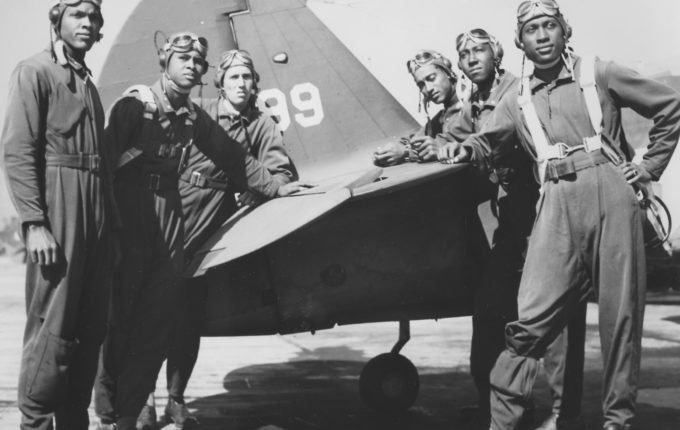THE NATION CLASSROOM
American History as It Happened
RACE RELATIONS and CIVIL RIGHTS
MODULE FIVE: 1930-1945

PERIOD SUMMARY: The United States grappled with enormous crises between 1930 and 1945. In late 1929, the Great Depression began, causing widespread unemployment around the world. For black Americans, unemployment topped 50 percent, nearly double the rate for white Americans.
The great migration of millions of African-Americans from the rural South to the cities of the industrial North, which began in the ’teens, continued. It led to tighter housing markets and increased competition for already scarce jobs, which naturally heightened racial tensions. Perhaps the most notorious case of racial injustice during this period was that of the “Scottsboro Boys”—nine young black men from Alabama who were falsely accused of rape, found guilty by an all-white jury, and sentenced to death in 1931. Protests, legal appeals, and retrials eventually saved their lives, but all nine spent years in prison for crimes they had not committed.
There were, however, bright spots for African-Americans. Sprinter Jesse Owens won four gold medals in front of Adolf Hitler at the Olympic Games in Berlin in 1936, and boxer Joe Louis became heavyweight world champion in 1937. The Harlem Renaissance continued to flourish, producing a wealth of black arts, culture, and scholarly achievements. In 1937, African-American writer Zora Neale Hurston published her masterwork, Their Eyes Were Watching God.
After the US joined World War II in December 1941, more than three million African-Americans registered for military service, and half a million served in the armed forces. All branches of the military were segregated, and blacks’ service experience was often marred by racist treatment and blatant discrimination. Despite fierce challenges, a number of African-American units distinguished themselves. Among many examples, Benjamin O. Davis became the US Army’s first black Brigadier General, and the all-black squadron of Tuskegee Airmen was acclaimed for its effectiveness and bravery.
Notwithstanding the grim environment of economic distress, war, and widespread discrimination, there were also positive political developments for America’s black population. President Franklin Roosevelt’s New Deal benefits offered crucial support: important government agencies were created, and laws passed, that helped protect the black community from overt racism. Labor unrest led to improved hiring practices, and when black soldiers returned to the US, they expected greater freedom and more civil rights.
Below you’ll find excerpts from selected articles that ran in The Nation between 1930 and 1945.
The DBQ (document-based question) about this set of excerpts is: Amid the catastrophic Great Depression and World War II, African-American life went through important changes between 1930 and 1945. Using the documents below and your outside knowledge, identify at least four significant developments that affected the African-American community—negative and/or positive—and explore what they said about the possibility of progress in the future for America’s blacks.
AS YOU READ: THINGS TO LOOK FOR
- Recall. Identify some of the hardships African-Americans faced in the years 1930–1945. Which ones were particular to that time period?
- Demonstrate understanding. Determine how the excerpts relate to each other. Which ones illuminate or refute others?
- Analyze content. Categorize the excerpts according to how they reflect economic, cultural, political, social, or human rights concerns.
- Create meaning. Evaluate how the United States changed over the fifteen years from 1930 to 1945, particularly as seen through the lens of the African -American experience.
VOCABULARY
chain gang
change of venue
conflict of ideologies
dialectic
Federal Emergency Relief Administration (FERA)
Four Freedoms
hobo

